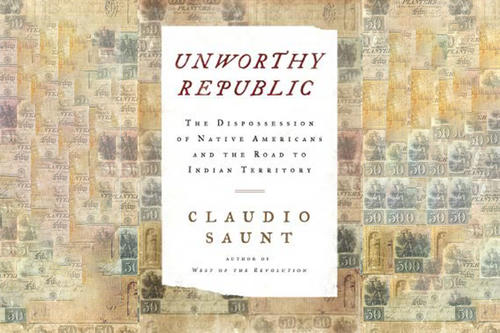Section Branding
Primary Content
Virtual Talk | Claudio Saunt featuring GPB's Virginia Prescott

Join GPB's Virginia Prescott for a live discussion with author and professor, Claudio Saunt, as he talks about his new book Unworthy Republic: The Dispossession of Native Americans and the Road to Indian Territory.
7 - 8 p.m.
Drawing on firsthand accounts and the voluminous records produced by the federal government, Saunt’s deeply researched book argues that Indian Removal, as advocates of the policy called it, was not an inevitable chapter in U.S. expansion across the continent. Rather, it was a fiercely contested political act designed to secure new lands for the expansion of slavery and to consolidate the power of the southern states. Indigenous peoples fought relentlessly against the policy, while many U.S. citizens insisted that it was a betrayal of the nation’s values. When Congress passed the act by a razor-thin margin, it authorized one of the first state-sponsored mass deportations in the modern era, marking a turning point for native peoples and for the United States.
In telling this gripping story, Saunt shows how the politics and economics of white supremacy lay at the heart of the expulsion of Native Americans, how corruption, greed, and administrative indifference and incompetence contributed to the debacle of its implementation, and how the consequences still resonate today.
This is a free virtual talk, presented as part of the Atlanta History Center Author Talks program.